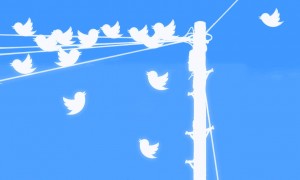
EDITOR’S NOTE: Links to selected media news from the past week.
SHORT TAKES:
– It’s the era of math — math for journalists. Schools across the country are tackling how to teach reporters to use data in the digital era. And as visualized data reporting gains ground in journalism, math literacy is more important than ever. PBS, Nieman Lab
– Just how much does Facebook mean to news organizations’ success? Maybe too much. Newswhip, Gigaom
– Fifty-nine percent of those questioned in a recent survey said “they believe that a news site that runs sponsored content loses credibility.” Fortune
– Would the world be a better place if everyone had the analytical skills of a journalist? Stony Brook University in New York wants to find out. Poynter
– The New York Times plans to add “deputy-level editors” spread out through the paper’s editorial departments to develop social media trends into stories, amid other audience development responsibilities. Capital New York
– There’s something scary about watching predictions about technology and newspapers from 1980 — and hilarious, especially the anchor hair. YouTube
– “Twitter is the best app for breaking news, in all its messy glory,” according to Ben Smith, editor-in-chief, BuzzFeed. New York Magazine
– The experimental newsroom for Google has an editorial bias towards happy news. Npr.org
[Oprah via giphy.com via www.reactiongifs.com]
SHAREABLE
Stop looking like a slob at work: Curious how to “report and look good at the same time?” Well, there is a Pinterest page for you! Maintained by the Society of Professional Journalists, the Fashion for Journalists page includes normal outfits that every journalist should consider wearing to work and other advice that might be in the category of too-obvious, like the Kate Spade newspaper clutch or the “newspapers and magazines” canvas tote….
Those feelings you are feeling? Don’t share them on social media. Media industry blogger Jim Romenesko had a series of posts this week regarding journalism fails on social media, including the one about the reporter who tweeted — “I reach out to diverse sources on deadline. Only the white guys get back to me :(” ; the leaked memo from NPR, in which the news organization said reporters should consider before posting, even on personal pages, whether what they are saying is helping or hurting their journalism; and the list of tweets from an anonymous reader on what reporters would be tweeting if they were telling the real truth about their work day.
Guess who beats BuzzFeed, The Huffington Post and NPR on Facebook? Time.com in the past three months has grown its Facebook likes by 44 percent, to 5.4 million, according to Digiday. Could it have anything to do with this item on why soccer players’ bodies are sexier than football players’?
THE BIZ
One response to someone who says the internet kills newspapers: “We are much more than the printed product that arrives at your home each day; we’re the region’s largest media company and have been for decades.” So says Mi-Ai Parrish, president and publisher of the Kansas City Star in a Q & A with the Newspaper Association of America.
Free articles for all! But then, a paywall. Are paywalls “settled wisdom?” The New York Times says yes in this story about The New Yorker, which joins The Financial Times, The Wall Street Journal and The New York Times in using some sort of system to charge for online content. Before the New Yorker paywall is implemented, however, it will offer its articles online free — for three months, reports The Times.
[Comedian Tiny Fey via Giphy.com via totallylaughed.tumblr.com]
PREDICTIONS
Journalists and aspiring journalists with investigative reporting chops may want to consider pursuing a career track in social media verification — put simply, the hard work involved in determining whether a possibly newsworthy video, photo or tweet is true. Storyful, a news agency that distributes verified items from social media, told American Journalism Review that it plans to double its staff in the next year. Amnesty International is also getting into the verification game:, reports Poynter, and launched several new tools this week to help its users understand the origins of online content and videos.








Leave a Comment